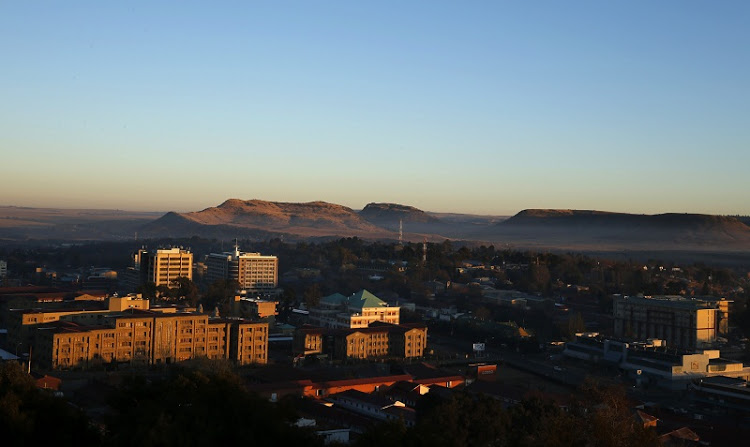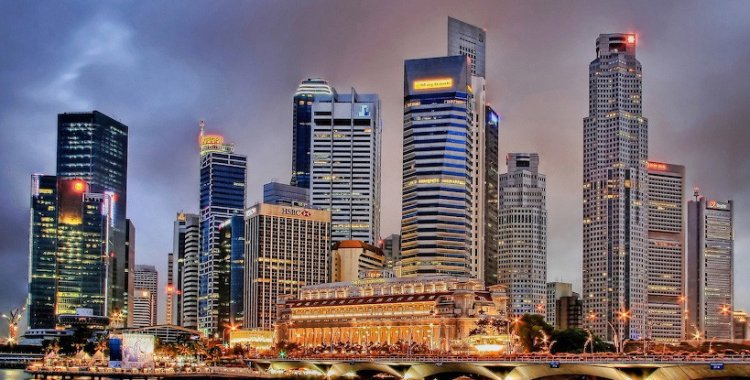News
Zimbabwe crumbles while SA looks on in 'solidarity'
If ever there was a time Pretoria needed to show true togetherness with the people of its northern neighbour, it is now.

Former Research Director, The Brenthurst Foundation

Former Director, The Brenthurst Foundation

In the early hours of a November morning in 1995 in Auckland, New Zealand, Nelson Mandela roused his foreign minister, Alfred Nzo, and began one of the most powerful diplomatic interventions ever conducted by SA.
Ken Saro-Wiwa was a Nigerian writer and activist against the degradation of the environment by oil companies in the Niger delta, and an outspoken critic of Gen Sani Abacha's military regime.
On that morning — New Zealand time — Saro-Wiwa was hanged after a trial by a special military tribunal on the ridiculous and unproven charge that he had masterminded the murder of chiefs attending a government meeting.
Mandela was furious. He was attending the Commonwealth heads of government summit, and by the end of the day he had cajoled, strong-armed and persuaded the traditionally spineless body into imposing sanctions against Nigeria for its flagrant abuse of human rights.
It was an action entirely in keeping with the newly democratic SA's human rights-based constitution and its new position in the world as an example of the courageous fight to rid the world of despotism.
But, sadly, it was to be the last time SA took such a course. Under his successors, Thabo Mbeki, Jacob Zuma and now Cyril Ramaphosa, SA has abandoned the human rights agenda in foreign policy in favour of a collection of actions and statements that have variously been called “quiet diplomacy”, “solidarity” and “multilateralism”.
It goes without saying that Africa's despots did not like this new upstart and its disruption of decades of comfortable solidarity among its undemocratic nations.
The rhetoric is still there. In December 2019 new international relations & co-operation minister Naledi Pandor wrote: “The essence of SA's foreign policy is drawn from its embrace of the principles of human rights, democracy, international solidarity and co-operation, as well as a steadfast belief that multilateralism in global affairs is absolutely critical for a peaceful and secure world.”
She went on to express solidarity with Cuba, Venezuela, Bolivia and Chile, which she said were the victims — not the perpetrators — of abuses.
“Our foreign policy goes well beyond our continent's policy agenda. SA has not ever deserted its traditional solidarity with the people and government of Cuba. The Cuban people sacrificed life and limb in the course of our struggle and we have worked alongside them, providing support in a context where many, including old friends, have shied away.
“Even in the most recent events in Nicaragua, Chile, Bolivia and Venezuela we have voiced objections to externally imposed regime change efforts and called on political foes to pursue dialogue and joint negotiations to develop nationally agreed solutions.”
The month before she wrote these words SA had abstained from voting for a UN resolution condemning human rights abuses by Myanmar against the Rohingya. Only after it was clear this was one solidarity too far did SA relent and back the resolution in the General Assembly plenary.
Comradely solidarity does not come cheap. The R440m deal for Covid Cuban doctors is the latest in a long-standing cash-for-services relationship where poor South Africans subsidise socialism across the Atlantic. Cuban mechanics service SA National Defence Force vehicles on the same basis.
It's not only expensive in financial terms. While it may reinforce perceptions of ideological purity and radicalism, it devalues human rights and democracy to be a financial supporter of a contrarian political system as in Havana or Caracas. But the most glaring example of how human rights means “the comrades can do no wrong” is much closer to home.
In Zimbabwe, a suspect election has been overlooked, police shootings of demonstrators have been ignored and an economy spiralling out of control has barely been noticed as SA cosies up to President Emmerson Dambudzo Mnangagwa.
The arrest and detention of the deputy leader of Zimbabwe's opposition MDC, Tendai Biti, this week has not caused an eyelid to bat in Pretoria, where such inconveniences are not permitted to get in the way of revolutionary solidarity.
Biti was arrested after he marched on his party's own headquarters to demand that he be allowed in after Mnangagwa's security forces installed a fake MDC leader in the headquarters and threw out the party's real leaders.
By Biti's telling, this is what happened: “Without warning or notice, or without being informed of any charge, the men and women in our group were arrested. Bundled into a police truck, we were ferried to Harare Central Police Station.
“No restraint was exercised. The police were particularly rough and insensitive to two of my colleagues, 70-year-old senator David Chimhini and young Lovemore Chinoputsa, who kept on demanding [to know] why we were being arrested.”
Biti would over the next day experience what he described as “the grisly intestines of state failure” as he was moved from one broken-down and crowded detention facility to another, with no regard whatsoever for the global health pandemic.
“There were other prisoners present, including one policeman, Shungudzemoyo Kache, who had been charged of sedition allegedly for calling Mr Mnangangwa 'a used condom'. In the room and lying on the dilapidated floor was MDC-Alliance activist Womberai Nhende, who had a huge gashes on his leg after having been tortured and badly assaulted by the police. He was struggling to breathe and was shivering.

“The police did not care and no medical attention was being offered to him until our lawyers insisted that he be taken to a hospital. The men among us were led to a sewer, masquerading as a toilet, with filthy water running on the ground and a semi-decent but ancient urinary.
“There was no running water, there [was] no toilet paper, and there wasn't even electricity in this toilet. There were no sanitisers in this toilet. The flushing systems were not even working.”
Such stories of state violence and abuse are numerous in Zimbabwe, where protesters are routinely shot dead by police and hundreds have been arrested.
Mnangagwa knows he has to play the game on the world stage, where he attends Davos and engages in public acts of camaraderie with Ramaphosa. They probably feel a bond because they were both believed to be reformers taking over from failed leaders, feted by the global community as offering new hope for Southern Africa.
But, back home, Mnangagwa has a thin skin. When Chrispen Rambu, a councillor from the town of Chipinge, compared his handling of the Covid-19 pandemic unfavourably with Ramaphosa's, he was called in by the police and charged with insulting Mnangagwa and undermining his authority.
His sin was a WhatsApp message that read: “Ramaphosa just announced a R500bn stimulus package. Seeing him addressing and comparing him with ED you won't doubt that we are having a fool for a head of state.” ED is a reference to Mnangagwa.
SA's neighbour is descending fast into a quagmire of economic hardship and famine, with its inflation rate second only to Venezuela and the UN warning that half of its population is threatened by famine.
But this does not seem to concern Pretoria, which prizes comradely solidarity above all else and won't break ranks with its neighbour.
At the funeral for Robert Mugabe in September 2019, Ramaphosa said: “Many Zimbabweans paid with their lives so that we could be free. We will never forget or dishonour this sacrifice and solidarity.”
It appears to have escaped him that many Zimbabweans are still paying with their lives to be free to this day. If ever there was a time to pay them back for their solidarity, it is now.
This article was originally published in Business Day.

